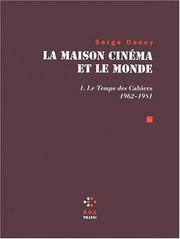| Listing 1 - 10 of 30 | << page >> |
Sort by
|
Book
ISBN: 9062221734 Year: 1988 Publisher: Amsterdam SUA
Abstract | Keywords | Export | Availability | Bookmark
 Loading...
Loading...Choose an application
- Reference Manager
- EndNote
- RefWorks (Direct export to RefWorks)
Homosexuality --- Gay liberation movement --- #GBIB:IDGP --- Gay and lesbian liberation movement --- Gay and lesbian movement --- Gay and lesbian rights movement --- Gay lib --- Gay movement --- Gay rights movement --- Homophile movement --- Homosexual liberation movement --- Homosexual movement --- Homosexual rights movement --- Lesbian liberation movement --- Lesbian rights movement --- Social movements --- Same-sex attraction --- Sexual orientation --- Bisexuality --- Gay liberation movement. --- Homosexuality.
Book
ISBN: 9023415124 Year: 1975 Publisher: Amsterdam Bezige Bij
Abstract | Keywords | Export | Availability | Bookmark
 Loading...
Loading...Choose an application
- Reference Manager
- EndNote
- RefWorks (Direct export to RefWorks)
Liberty --- Civil liberty --- Emancipation --- Freedom --- Liberation --- Personal liberty --- Democracy --- Natural law --- Political science --- Equality --- Libertarianism --- Social control

ISBN: 9782818016343 9782867448126 9782867449079 9782818018552 2867448123 2867449073 2818016347 2818018552 Year: 2001 Publisher: Paris : P.O.L.,
Abstract | Keywords | Export | Availability | Bookmark
 Loading...
Loading...Choose an application
- Reference Manager
- EndNote
- RefWorks (Direct export to RefWorks)
Le premier volume est consacré essentiellement au temps des "Cahiers du cinéma", de 1962 à 1981; il raconte les années d'apprentissage de Serge Daney, sa découverte conjointe du cinéma et du monde, son engagement résolument politique, en rassemblant enfin la plupart de ses articles, souvent rares et inaccessibles, parfois inédits. Avec le deuxième volume s'amorce la publication des années Libé de Serge Daney. Nommé en 1981 responsable du Service cinéma, il quitte la rédaction en chef des "Cahiers" afin de se consacrer totalement à l'écriture au quotidien. Le troisième volume poursuit la publication des textes de Serge Daney non recueillis de son vivant, signés de son seul nom et parus, pour l'essentiel, dans le journal Libération. II continue d'écrire sur les films qui sortent en salles chaque semaine mais revisite aussi ceux, plus classiques, qu'il passe au crible de la télévision dans sa chronique des "Fantômes du permanent". Il s'engage plus encore dans le décryptage de l'information, de la publicité et des médias. Cet ouvrage regroupe les publications de S. Daney dans les Cahiers du Cinéma de 1981 à 1985. Le journaliste s'y laisse découvrir à travers ses réflexions, sa découverte du cinéma, et son engagement politique.
Films --- Télévision --- Comptes rendus --- Émissions --- Libération (périodique France 1973-....) --- Les cahiers du cinéma --- Libération --- Daney, Serge --- Les cahiers du cinéma --- Série Libération. --- Daney, Serge, --- Trafic (périodique ; France ; 1991-....) --- Libération (périodique ; France ; 1973-....) --- Motion pictures --- Cinéma --- Média --- Politique --- Presse --- Motion pictures. --- Film criticism --- Cinéma --- Critique cinématographique --- Reviews --- Trafic --- Comptes rendus. --- Motion pictures - Reviews

ISBN: 9053521895 Year: 1995 Publisher: Amsterdam Boom
Abstract | Keywords | Export | Availability | Bookmark
 Loading...
Loading...Choose an application
- Reference Manager
- EndNote
- RefWorks (Direct export to RefWorks)
Liberty. --- Paternalism. --- Liberty --- Paternalism --- Parentalism --- Social classes --- Social control --- Social systems --- Civil liberty --- Emancipation --- Freedom --- Liberation --- Personal liberty --- Democracy --- Natural law --- Political science --- Equality --- Libertarianism --- Netherlands --- Cultural policy.
Book
ISBN: 9068340980 Year: 1992 Publisher: Bloemendaal Aramith
Abstract | Keywords | Export | Availability | Bookmark
 Loading...
Loading...Choose an application
- Reference Manager
- EndNote
- RefWorks (Direct export to RefWorks)
Sociology of the family. Sociology of sexuality --- Sexology --- Feminism --- Women --- -Z396 --- Z++92/05 --- Human females --- Wimmin --- Woman --- Womon --- Womyn --- Females --- Human beings --- Femininity --- Emancipation of women --- Feminist movement --- Women's lib --- Women's liberation --- Women's liberation movement --- Women's movement --- Social movements --- Anti-feminism --- History --- -Emancipation --- -Feminism --- Evaluation --- Book --- Empowerment
Book
ISBN: 9780008115272 9780008115289 0008115273 Year: 2014 Publisher: London Fourth Estate
Abstract | Keywords | Export | Availability | Bookmark
 Loading...
Loading...Choose an application
- Reference Manager
- EndNote
- RefWorks (Direct export to RefWorks)
What does "feminism" mean today? That is the question at the heart of We Should All Be Feminists, a personal, eloquently-argued essay - adapted from her much-viewed Tedx talk of the same name - by Chimamanda Ngozi Adichie, the award-winning author of 'Americanah' and 'Half of a Yellow Sun'. With humour and levity, here Adichie offers readers a unique definition of feminism for the twenty-first century - one rooted in inclusion and awareness. She shines a light not only on blatant discrimination, but also the more insidious, institutional behaviours that marginalise women around the world, in order to help readers of all walks of life better understand the often masked realities of sexual politics. Throughout, she draws extensively on her own experiences - in the U.S., in her native Nigeria - offering an artfully nuanced explanation of why the gender divide is harmful for women and men, alike. Argued in the same observant, witty and clever prose that has made Adichie a best-selling novelist, here is one remarkable author's exploration of what it means to be a woman today - and an of-the-moment rallying cry for why we should all be feminists.
Feminism. --- Féminisme --- Femmes --- Conditions sociales --- Feminism --- Women --- Sex differences (Psychology) --- Social conditions --- Féminisme --- Political philosophy. Social philosophy --- Sociology of the family. Sociology of sexuality --- Sociology of minorities --- Thematology --- Adichie, Chimamanda Ngozi --- Nigeria --- Africa --- sociologie --- cultuursociologie --- maatschappijkritiek --- gender studies --- feminisme --- eenentwintigste eeuw --- vrouwen --- vrouwelijkheid --- 130.2 --- Sex (Psychology) --- Emancipation of women --- Feminist movement --- Women's lib --- Women's liberation --- Women's liberation movement --- Women's movement --- Social movements --- Anti-feminism --- Emancipation --- Gender --- Lecture --- Writers --- Blackness --- Book
Book
ISBN: 9001097944 Year: 1985 Publisher: Groningen Wolters-Noordhoff
Abstract | Keywords | Export | Availability | Bookmark
 Loading...
Loading...Choose an application
- Reference Manager
- EndNote
- RefWorks (Direct export to RefWorks)
sociaal-cultureel werk, vrouwen --- vrouwen --- vrouwenemancipatie --- volwassenenonderwijs --- Women --- -Women --- -Feminism --- -Adult education of women --- Emancipation of women --- Feminist movement --- Women's lib --- Women's liberation --- Women's liberation movement --- Women's movement --- Social movements --- Anti-feminism --- Human females --- Wimmin --- Woman --- Womon --- Womyn --- Females --- Human beings --- Femininity --- 374.7 --- 396 --- 375 --- Education --- -Education --- Emancipation --- -374.7 --- -sociaal-cultureel werk, vrouwen --- Adult education of women --- Feminism --- Education of women --- Women's education
Book
ISBN: 9780822363040 0822363046 9780822363194 0822363194 9780822373377 0822373378 Year: 2017 Publisher: Durham : Duke University Press,
Abstract | Keywords | Export | Availability | Bookmark
 Loading...
Loading...Choose an application
- Reference Manager
- EndNote
- RefWorks (Direct export to RefWorks)
In Living a Feminist Life Sara Ahmed shows how feminist theory is generated from everyday life and the ordinary experiences of being a feminist at home and at work. Building on legacies of feminist of color scholarship in particular, Ahmed offers a poetic and personal meditation on how feminists become estranged from worlds they critique—often by naming and calling attention to problems—and how feminists learn about worlds from their efforts to transform them. Ahmed also provides her most sustained commentary on the figure of the feminist killjoy introduced in her earlier work while showing how feminists create inventive solutions—such as forming support systems—to survive the shattering experiences of facing the walls of racism and sexism. The killjoy survival kit and killjoy manifesto, with which the book concludes, supply practical tools for how to live a feminist life, thereby strengthening the ties between the inventive creation of feminist theory and living a life that sustains it. -- Provided by publisher.
Feminist theory. --- Feminism. --- Political philosophy. Social philosophy --- Sociology of the family. Sociology of sexuality --- Feminism --- Feminist philosophy --- Feminist sociology --- Theory of feminism --- Emancipation of women --- Feminist movement --- Women --- Women's lib --- Women's liberation --- Women's liberation movement --- Women's movement --- Philosophy --- Emancipation --- Feminist theory --- #SBIB:316.346H10 --- Vrouwenproblematiek, feminisme: algemeen --- Social movements --- Anti-feminism --- women's movement --- sexual minority --- 7.01 --- Feminisme --- maatschappijkritiek ; activisme --- Kunst ; theorie, filosofie, esthetica --- Théorie féministe --- Féminisme --- Theory --- Book --- Daily life --- Experiences
Book
ISBN: 9781783606757 9781783606764 1783606754 1783606762 Year: 2016 Publisher: London Zed Books
Abstract | Keywords | Export | Availability | Bookmark
 Loading...
Loading...Choose an application
- Reference Manager
- EndNote
- RefWorks (Direct export to RefWorks)
Feminism is Queer is an introduction to the intimately related disciplines of gender and queer theory. While guiding the reader through complex theory, the author develops the original position of "queer feminism," which presents queer theory as continuous with feminist theory. While there have been significant conceptual tensions between second wave feminism and traditional lesbian and gay studies, queer theory offers a paradigm for understanding gender, sex, and sexuality that avoids the conflict in order to develop solidarity among those interested in feminist theory and those interested in lesbian and gay rights. This accessible and comprehensive textbook carefully explains nuanced theoretical terminology and includes extensive suggested further reading to provide the reader with a full and thorough understanding of both disciplines.--Publisher information.
Feminist theory --- Queer theory --- Third-wave feminism --- Feminism --- Feminist philosophy --- Feminist sociology --- Theory of feminism --- Emancipation of women --- Feminist movement --- Women --- Women's lib --- Women's liberation --- Women's liberation movement --- Women's movement --- Social movements --- Anti-feminism --- Gender identity --- Philosophy --- Emancipation --- #KVHA: Cultuurfilosofie --- #KVHA: Feminisme --- #KVHA: Queer --- #KVHA: Sexualiteit --- #KVHA:Cultuurgeschiedenis --- #KVHA:Feminisme --- #KVHA:Ethiek --- #KVHA:Sexualiteit --- #KVHA:Cultuurfilosofie --- Feminist theory. --- Queer theory. --- Third-wave feminism. --- Gender identity.
Book
ISBN: 0820349526 9780820349527 9780820349510 0820349518 9780820349534 0820349534 Year: 2017 Publisher: Athens University of Georgia Press
Abstract | Keywords | Export | Availability | Bookmark
 Loading...
Loading...Choose an application
- Reference Manager
- EndNote
- RefWorks (Direct export to RefWorks)
Feminism --- Feminism and mass media --- Women's rights --- Women's mass media --- Mass media for women --- Women's media --- Mass media --- Women --- Rights of women --- Human rights --- Mass media and feminism --- Emancipation of women --- Feminist movement --- Women's lib --- Women's liberation --- Women's liberation movement --- Women's movement --- Social movements --- Anti-feminism --- History --- Press coverage --- Civil rights --- Law and legislation --- Legal status, laws, etc. --- Emancipation --- Social change --- anno 1900-1999 --- United States --- United States of America --- Feminist magazines --- Media --- Women's movements
| Listing 1 - 10 of 30 | << page >> |
Sort by
|

 Search
Search Feedback
Feedback About UniCat
About UniCat  Help
Help News
News